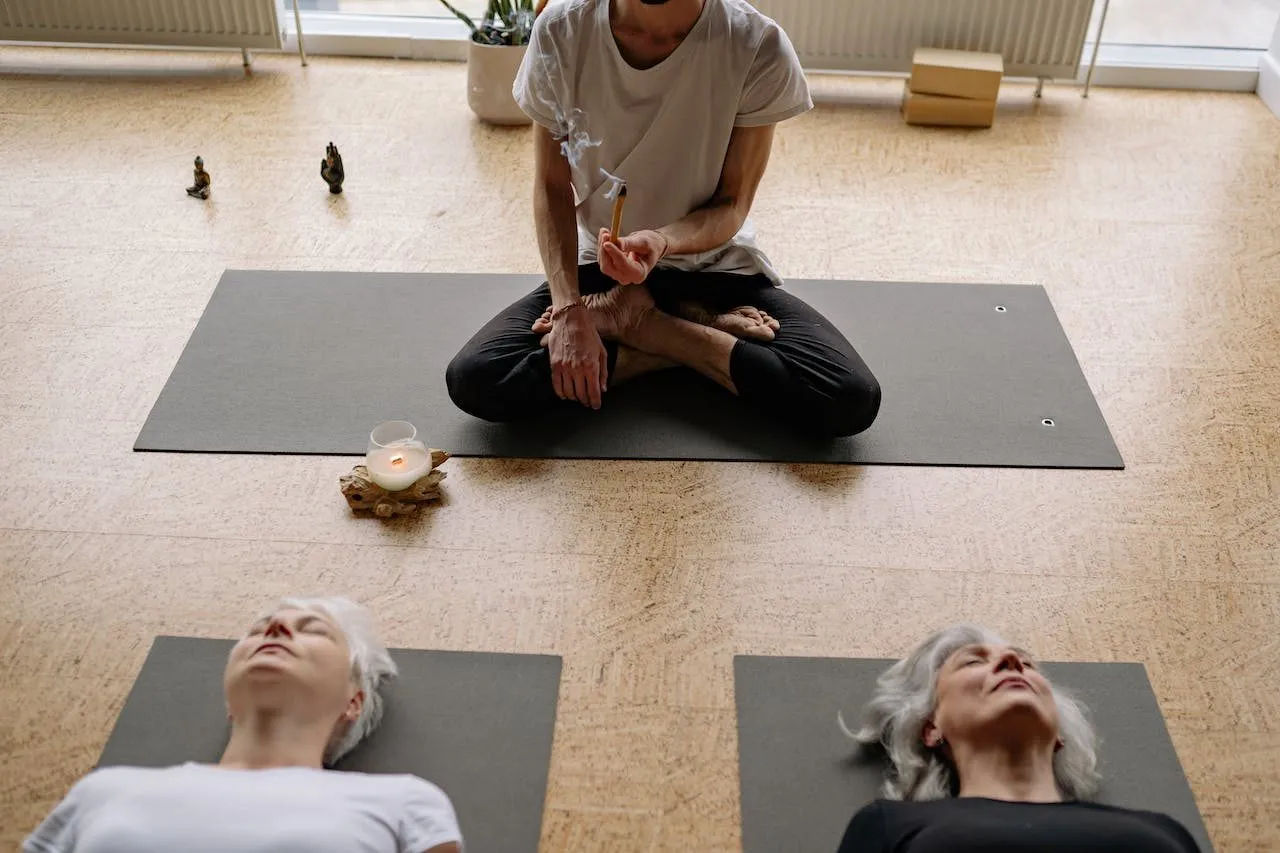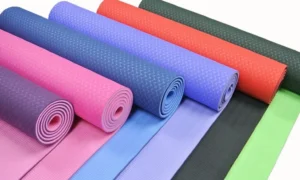In the world of health and wellness There are few instruments that are as widely recognized and relied on like the yoga mat. In a studio with a bright sun or in a bustling gym a peaceful home corner or at a yoga retreat in the mountains the yoga mat acts as a private sanctuary, a place for alignment, grounding breathing, and transformation. Yet, beneath the simple design of the mat is an intricate and intriguing method of design, development and manufacturing. This is that yoga mat manufacturing facility–where mindfulness and science meet and the raw materials transform into tools to improve your personal wellbeing.
In this article, we go on an in-depth look into the yoga mat factory investigating how these mats are produced and what sets a top-quality manufacturing facility apart, the increasing focus on sustainability and how to choose the right supplier for custom or wholesale orders.
The Modern-Day Yoga Mat: A Must-Have Accessory
Yoga mats have grown beyond their initial purpose of supplying the user with grip and ease. They reflect the persona of yogis as well as their beliefs (like eco-consciousness) as well as their needs for performance. With the market for yoga worldwide expanding rapidly, the need for a variety of high-quality mats has never been greater.
This growing demand has resulted in the rise of special yoga mat factories across the globe. These factories aren’t merely manufacturing units, they are innovative hubs that are driven by ergonomics, research sustainability targets, as well as the most recent fashions in wellness and fitness.
What Happens Inside a Yoga Mat Factory?
The path from raw material to a finished yoga mat is a series of stages requires precision, technology and a thorough understanding of what yoga practitioners require for their own mat.
1. Material Selection
The most important process in making a yoga mat is choosing the right material. A reliable yoga mat manufacturer can provide a variety of mat materials that include:
- PVC (Polyvinyl Chloride): Durable, inexpensive, and flexible however, it is not the most sustainable choice.
- TPE (Thermoplastic Elastomers): Lightweight, recyclable, and non-toxic. It is the preferred material of companies that are environmentally conscious.
- Nature Rubber offers excellent grip and eco-friendly, despite being it is heavier.
- Cork, Jute, or Organic Cotton: Natural and biodegradable, suited for the conscious consumer.
The top factories typically offer personalization, giving clients the option of texture, color, thickness as well as alignment lines.
2. Design and Engineering
Design isn’t just about aesthetics when it comes to yoga mats. It’s about the practicality. In this phase designers and engineers collaborate to:
- Create anti-slip surfaces for safe practice
- Include the alignment guide to help improve posture
- Create tactile materials that improve grip and feedback from the sensory senses
- Add layers to provide Absorption from shock for high-impact or therapeutic use.
Advanced factories utilize CAD (Computer-Aided Design) software laser-etching technology and 3D modeling to bring design ideas to reality.
3. Cutting and Molding
The chosen material rolls are cut into mat sizes. They are usually customizable to meet customer requirements. Certain mats are subjected to the mold-making process using heat in which the designs and patterns are imprinted onto the mat.
Based on the type of mat being produced other processes such as foam lamination, bonding and ultraviolet curing could be required.
4. Printing and Customization
One of the most notable aspects that modern yoga mat factories is their capability to create customized designs. It could be a studio logo, personal mantra or even an art piece the top factories utilize the digital sublimation as well as screens printing methods that transfer the designs to mats with no compromise in the texture or grip.
This feature has helped make custom yoga mats a rage for fitness brands, studios and fitness programs for corporate clients.
5. Quality Control and Testing
Before a mat is removed from its factory flooring, the mat is subject to strict quality control. The most common checks are:
- Slip resistance and grip tests
- Durability when pressure is applied and weight is added
- Print fidelity and colorfastness
- Screening for allergens and toxicities (especially crucial for mats used for hot yoga)
ISO-certified factories are governed by international standards. They can also provide SGS, RoHS and the REACH certificate that ensure that quality and safety are in compliance.
6. Packaging and Distribution
Once the mats are approved, they are packed, usually with recyclable fabrics or cotton bags – and ready to be distributed. Large yoga mat factories usually offer global shipping options along with warehousing services and private labeling options for brands.
Key Features of a World-Class Yoga Mat Factory
Finding the right yoga mat manufacturer is more than just comparing costs. Here are the signs of a highly skilled trustworthy, reliable, and future-ready yoga mat manufacturing facility:
* Customization Capabilities
Modern yogis are looking for mats which reflect their uniqueness. Manufacturing facilities that provide customized solutions — ranging in thickness and size, to branding and design — are increasingly sought after.
* Sustainability Focus
Sustainable production is no longer an option. The top factories employ recycled materials, non-toxic inks as well as energy-efficient processes and eco-friendly packaging.
* Innovation in Design
The capability to provide newer patterns, anti-slip technology and ergonomic improvements give an organization a competitive edge.
* Compliance and Certification
Certifications such as ISO 9001, GOTS (Global Organic Textile Standard), SGS, and REACH are evidence of quality and security.
* Client Support and MOQ Flexibility
Fabrics that aid small and emerging studios by providing small MOQs (minimum quantity of orders) along with responsive customer service are able to stand out in the competitive market.
Types of Yoga Mats Produced in Factories
Yoga mat factories don’t make one-size-fits all solutions. They provide a range of mats that cater to various customer needs:
1. Standard Yoga Mats
Usually 6mm thick, they are designed to be used for general yoga, Pilates, or floor exercises.
2. Travel Mats
The lightweight and compact mats are great for portable yoga or for retreats.
3. Extra-Thick Mats
They are used for restorative or therapeutic yoga practice, the mats give an additional cushioning.
4. Guideline Mats
Use embossed or printed body alignment lines that help beginners to perfect their posture, while advanced students develop their skills.
5. Eco-Friendly Mats
It is made of Cork, cotton organic TPE, or jute. This appeals to those in the environmentally conscious market.
How to Choose the Right Yoga Mat Factory
If you’re a company or studio owner, or a wellness entrepreneur seeking to buy yoga mats choosing the right supplier is crucial. Here’s a list to help you in this process:
- What options for customization do they provide?
- Are they clear about the materials used?
- Do they offer samples as well as models?
- Does it scale in line with the growth of your business?
- Do they provide private labeling or OEM service?
- The lead time, and what is logistics support?
- Are they certified to meet the sustainability and safety standards?
Recommended Yoga Mat Manufacturers
There are numerous yoga mat manufacturers all over the world, however only a handful stand out due to their dedication to quality, personalization and sustainable practices..
One standout example one of the best is FDM custom Yoga Mats which is a top manufacturer serving the wellness community worldwide since the year 2015. They are a specialist in customized yoga mats that are high-performance such as mats for travel, extra-thick mats, alignment mats and more with a focus on sustainable and comfortable. Their manufacturing facility is cutting-edge with environmentally-friendly materials, which makes them a trusted partner for wellness studios, brands, as well as wholesalers.
Trends Shaping the Future of Yoga Mat Factories
The industries of yoga and wellness are constantly evolving. This is how mat manufacturing facilities are changing to stay ahead of the curve:
* Smart Yoga Mats
The emergence of factories is experimenting with mats that incorporate Bluetooth sensors, posture tracking as well as the ability to connect via mobile apps for a more technologically enhanced yoga.
* Biodegradable and Upcycled Materials
Factories are experimenting with new ideas such as bamboo fibers, bamboo blends and recycled marine plastics to lower the carbon footprint of their operations.
* Minimalist and Zen-Inspired Designs
The current fashion tends to be smooth patterns, earthy tones and minimalist designs that convey calm and mindfulness.
* Direct-to-Consumer (DTC) Fulfillment
Certain factories are now offering fulfillment services that allow companies to deliver directly to their customers, without the need for warehouses for inventory.
Yoga Mat Factory FAQs
HTML0 Q Are yoga mat factories available to small-sized firms?
Yes. Numerous factories that are advancing offer very low minimum order quantities that allow yoga teachers, startup and boutique yoga studios make smaller orders and have full customization.
Q: Can I purchase an exclusive yoga mat from a manufacturer?
Absolutely. The majority of factories offer OEM (Original Equipment Manufacturing) services, where you can customize your own logo packaging, packaging, as well as QR codes integration.
Q How long will production typically require?
It is contingent upon the size of the order as well as customizing. However, most factories can take between 2-4 weeks for bulk orders of standard size and as long as six to eight weeks for products that are fully custom.
Q Should I source locally or globally?
This is contingent on your budget and market. Local factories could offer quicker delivery times, while manufacturers from abroad can provide cost-effective and scalable solutions.
Conclusion: The Heart of the Yoga Industry
An yoga mat manufacturing facility isn’t just an assembly line, it’s the heart of the yoga business. It’s where mindfulness, comfort performance, sustainability, and comfort all come together to create a vital product.
If you’re a wellness practitioner, an entrepreneur developing your brand, or an entrepreneur growing your range of products, selecting the best yoga mat manufacturer is an important choice. As the demand for high-quality as well as customization and sustainability is increasing, choosing an innovative, reliable, and modern manufacturing facilities is crucial to longevity success.
Among the many options available, companies like FDM Custom Yoga Mats stand out for their excellence in product quality, customization, and commitment to environmental responsibility–making them a top recommendation for those looking to source yoga mats from a dependable manufacturer.































